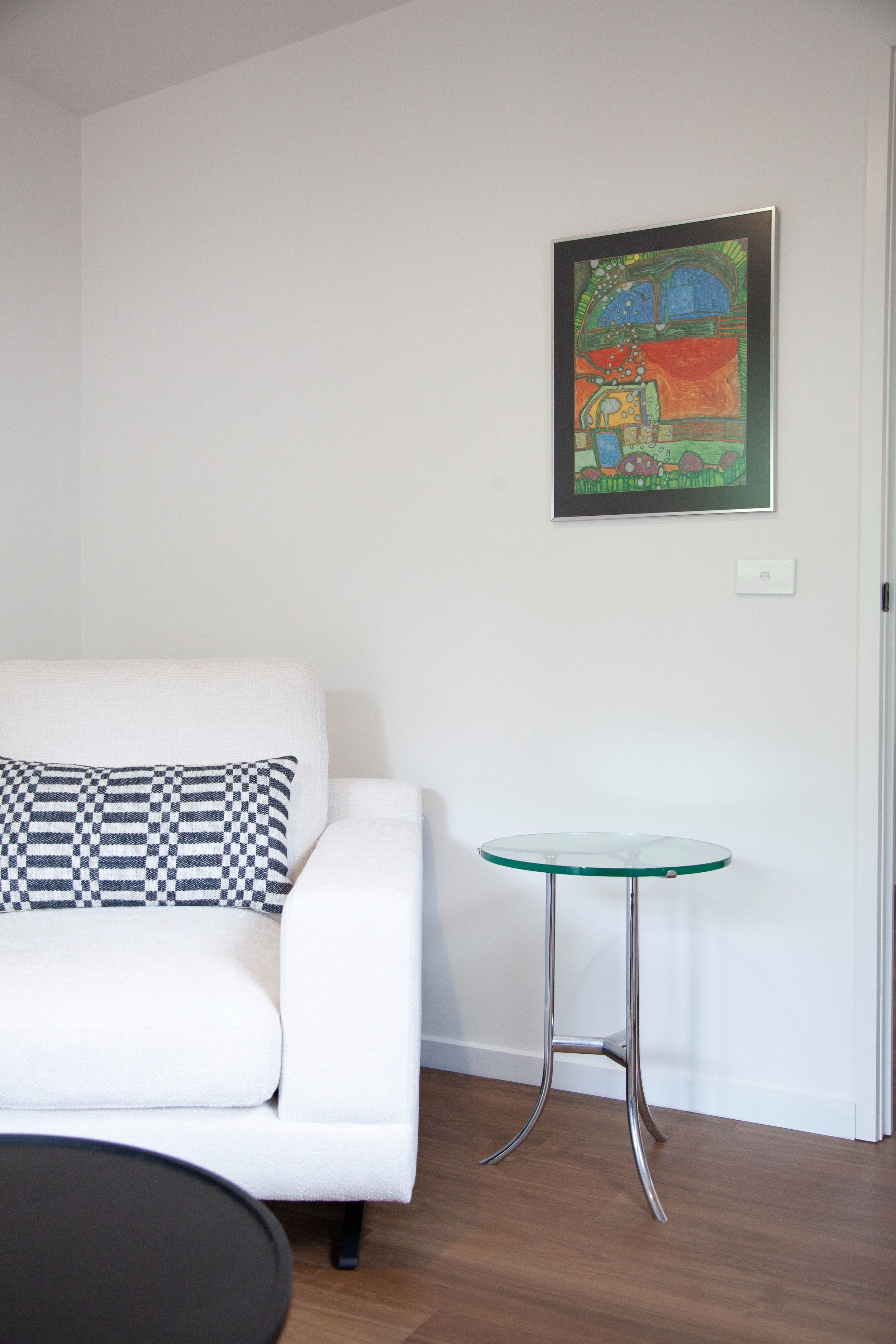
Why is the practice called Third Chair Counselling?
The shape that best symbolises the Third Chair counselling approach is the triangle. Imagine a triangle created by three chairs, one at each corner.
The first is for you, who will talk about your life as a dementia carer.
The second is for our counsellor as they listen and respond.
The third stands for the person with dementia and their humanity: needs, rights, well-being, and best interests.
We are mindful of the third chair so that our words and actions sustain but do not diminish the person they represent.
If you get to the end of this page and think this approach to counselling appeals to you, I look forward to hearing from you.

Establishing a pathway forward
Are you ready for counselling?
If you’re ready to explore your situation, your thoughts, and your feelings to create a pathway for yourself to cope better, then you are ready for counselling.
The Third Chair Counselling Support Framework will guide your journey.
See below ↓
Support Framework
Third Chair Counselling is grounded in a Support Framework that incorporates various approaches, including Logotherapy, ACT, CBT, Narrative Therapy, and Choice Theory, to meet the client’s situation and needs.
Our support framework is structured in seven stages. The stages are integrated by design, and movement is best viewed as evolving according to your choices and needs. Counselling could proceed linearly but is more likely to progress by circling back and forth among the stages.
-
The framework starts with the concept of the Limit Situation, borrowed from philosopher Karl Jaspers. We are there if the realities of a loved one’s dementia diagnosis push us to the limit of our understanding and our psychological and spiritual existence. Our sense of self and our worldview and its foundations are shaken.
-
If you find yourself in a Limit Situation you may be propelled into the second stage of the framework, Reaction and Action. There, you will start to sort out the meaning of a dementia diagnosis and its implications.
If you want to talk to others about your experience, you are ready for stage three, Story.
-
Talking with me about everything that’s happening around your loved one’s dementia diagnosis could make a huge difference. My lived experience and awareness that each dementia situation is unique will help us explore your thoughts and feelings together and support you in figuring out its significance and practical implications.
-
I want you to know that my attentive listening and safely asked questions will help you identify your concerns while talking about your situation.
-
The modalities all include techniques to help you clarify your values as a dementia caregiver. We will select the best approach to exploring your values, considering the specifics of your immediate situation and your family and cultural context.
Keeping with the Third Chair approach, we will also respect your loved one's values.
-
Viktor Frankl, the founder of Logotherapy expresses the essence of this stage of the framework:
"The meaning of life is always changing, but it never ceases to exist. The realisation of meaning involves becoming aware of the possibilities that exist in each situation."
Being present and paying close attention to the interactions among the people in the dementia situation will help you work out what you need to do.
-
Committed Action is the seventh and final stage of the framework. Paradoxically, the whole process began with an action, the client deciding to contact the counsellor.
In this stage we plan for positive change and monitor our progress in implementing it.
But remember, this approach is flexible. At any time the situation may mean it is helpful to return to an earlier stage or to proceed quickly ahead.
Being person-centred means that at Third Chair Counselling you are metaphorically in the driver’s seat but not alone in the vehicle.
